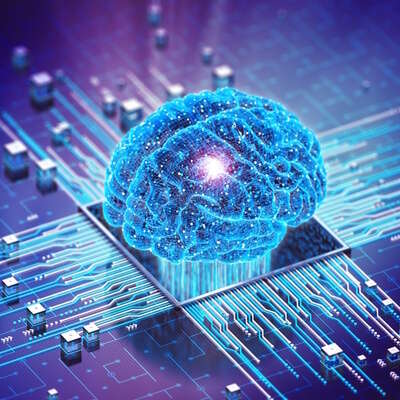At the Economist’s 27th Annual Government Roundtable, The Great Transition: Geopolitics, Environment, Technology, Boyden’s Anny Chatzonikonstantinou joined a panel discussion on ‘Leveraging technology and AI for societal benefits’. Here we highlight how organisations can get ahead.
“The great transition spurred by artificial intelligence is not a technological shift, it is a human one”
So commented Anny Chatzonikonstantinou, Managing Partner, Boyden Greece & Cyprus, at The Economist’s 27th Annual Government Roundtable held in Greece in late 2023.
The event gathered together politicians, ministers, leading scientists, business leaders, with an address by the Prime Minister of Greece, Kyriakos Mitsotakis. These illustrious leaders and change makers met to discuss ‘the great transition,’ covering today’s big topics: climate change and sustainability, energy security, pharmaceutical and tech developments.
Boyden’s Anny Chatzonikonstantinou represented the leadership and talent industry on the panel ‘Leveraging technology and AI for societal benefits’. Fellow panellists were:
- Konstantinos Kyranakis, Deputy minister of digital governance, Greece
- Kostas Axarloglou, Dean and professor of international business and strategy, Alba Graduate Business School, The American College of Greece
- John Georgoulas, Non-executive director, ECOMMBX
- Joan Hoey, Editor, The Democracy Index & senior analyst for Greece, The Economist Group
The prominent thought leaders discussed the skills and approaches needed to integrate artificial intelligence into our world, particularly in the business environment. While Bain & Company reports on rapid tech evolution, the OECD highlights how the pace of change outstrips the speed at which human skills can adapt: published by Forbes, The World Economic Forum warns of a new era of turbulence, with 25 percent of jobs changing over the next five years due to artificial intelligence, digitisation, renewable energy and supply chain reshoring. The forum predicts 69 million new positions will be created by 2027.
“I am optimistic,” asserts Anny. “Our clients are already investing in skills and how to approach this transition. At Boyden we are integrating AI into our search and intelligence gathering processes so rather than impeding us, it is helping us to do a better job. This shines a light on the importance of soft skills, which will count more and more in the future”.
It was well recognised on the panel that developments in AI are a catalyst for upskilling and learning, with academia creating momentum for collaboration between government and education to get ahead. Konstantinos Kyranakis explained the government’s evolving digital transformation, with a focus on education and creating platforms helpful to communities.
Discussions on re-skilling, upskilling and how to address AI revealed the extent to which the human factor can prevail, highlighting the skills humans need to adapt and advance. “We humans need to get ahead of technology, honing skills in adaptability, critical thinking and emotional intelligence,” comments Anny. “As leadership professionals, these are the factors we are seeking in senior executives, identifying the skills that make them the most effective and productive professionals. Adaptability is crucial, because we must continually learn and relearn in a fast-evolving landscape”.
How do organisations do this? A significant majority are investing in leadership development, as revealed in Boyden’s global executive survey 2023. Findings from 1,000 senior executives worldwide show that 70 percent are investing in leadership development, 67 percent in hiring new leadership talent and 58 percent in redeploying or retraining existing talent.
“We must be proactive, insists Anny. “Organisations need to invest in key human skills and train in advance. For individuals, we need to stay relevant, embrace change and innovation and adopt a growth mindset”.
The ability to learn and relearn will be a cornerstone of success. Anny reminds the audience, “The great transition we find ourselves in is not a technological shift, it is a human one. The ability to adapt our critical thinking, create and empathise defines our success in an evolving landscape.”
“As we move forward, remember that technology is a tool and humans are the craftsmen”.
The Economist’s 27th Annual Government Roundtable, held in Athens, can be viewed here.





